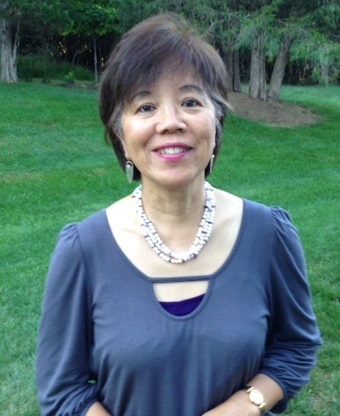SAMHSA’s Office of Behavioral Health Equity Works to Reduce Disparities
by Alison Lake Benadada
 |
| Larke Nahme Huang |
Larke Nahme Huang, Ph.D., director of SAMHSA’s Office of Behavioral Health Equity (OBHE), has a personal connection to the Minority Fellowship Program: She was one of its first Fellows in the 1970s, and has stayed involved in the program throughout her career.
But the connection between MFP and OBHE is not just personal. The office’s mission is to bring more Americans access to high-quality mental health and substance abuse care. This focus complements the MFP’s goal to train ethnic and racial minority researchers and service providers.
In approach and practice, the two entities are allies in an effort to better serve disadvantaged individuals who lack treatment in behavioral health. Their shared objective is to strengthen the cycle of training, outreach, and implementation, and establish permanent channels for behavioral health treatment.
It is a reciprocal relationship. “I remain close to the MFP program and have had a cadre of excellent MFP policy interns at SAMHSA,” said Huang. “The MFP is more than a scholarship program, as it gives these young minority graduate students a community to belong to, mentors, social support, and early career guidance. It’s great to see the longevity it has had and the number of professionals they have supported.”
One of the most gratifying outcomes of the program is the high number of Fellows who return to serve their own communities. “We know that providers who are of color tend to work in communities of color,” Huang said.
As OBHE director, Huang puts into daily practice the training from her early years as a minority psychologist. She explained that under the Affordable Care Act, SAMHSA was one of six agencies within the Department of Health and Human Services that had to stand up an office on minority health. OBHE was created to “look at how we increase the focus on racial and ethnic populations, which tend to be underserved in the behavioral health arena.”
People of color constitute more than half of Americans who are uninsured,1 and individuals with behavioral health conditions struggle to get and keep health insurance. Complicating these statistics is the fact that about one in six uninsured, low-income adults has a severe mental health disorder.2
Fortunately, expansion of coverage under the Affordable Care Act means an estimated 3.7 million people with severe mental health disorders will gain coverage by 2019.
OBHE is involved in numerous outreach efforts to address healthcare disparities and increase awareness of resources among national and state organizations. For example, its Health Care Reform Community of Practice has engaged four national associations to contact and help ensure that diverse populations—including limited English proficient individuals with behavioral health disorders—understand the basics of health insurance and opportunities to enroll for coverage. These associations serve the behavioral health interests of Asian Americans and Pacific Islanders, American Indians, Latinos, and African Americans.
With a data-informed, quality-improvement approach, the office is strategically focused on SAMHSA’s investments in all racial and ethnic groups, as well as in lesbian, gay, bisexual, and transgender populations. It builds on the Health and Human Services Secretary’s strategic action plan to reduce health disparities, influencing SAMHSA’s grant-making operations and policy development, training of a diverse workforce, and collection of behavioral health disparity and equity information.
OBHE maintains a diverse and highly complex national network, with organizations, agencies, and local community organizations. “We organized them into a network [the National Network to Eliminate Disparities in Behavioral Health] where we can share best practices and policies,” said Huang.
OBHE conducts regular trainings on evidence-supported interventions with a select number of community-based organizations. Participants “take the practice back to their communities, and we continue to give them coaching,” said Huang. “We’ve had some really interesting outcomes and scaling up in some of their communities.”
Huang noted that although OBHE is a small staff (Roslyn Holliday Moore and Juliet Bui), “We have a lot of extenders of our work in our Centers that are also committed to serving these populations.”
References
1Smedley, B. (2008). Moving beyond access: achieving equity in state health care reform. Health Affairs, 27(2), 447–55.
2Garfield, R. L., Zuvekas, S. H., Lave, J. R., & Donohue, J. M. (2011). The impact of national health care reform on adults with severe mental disorders. American Journal of Psychiatry, 168(5), 486–94.
|
|
|


